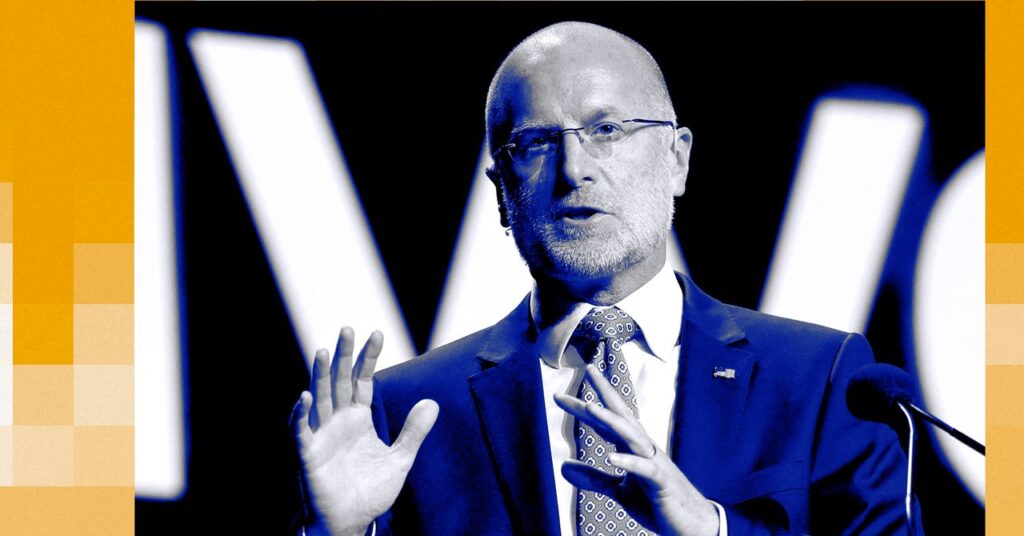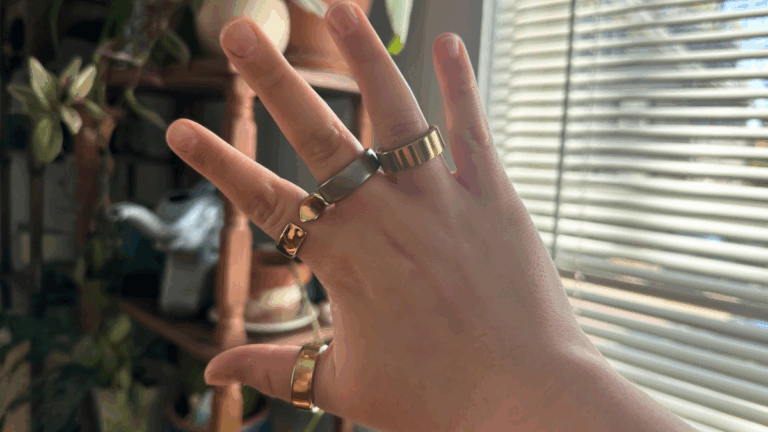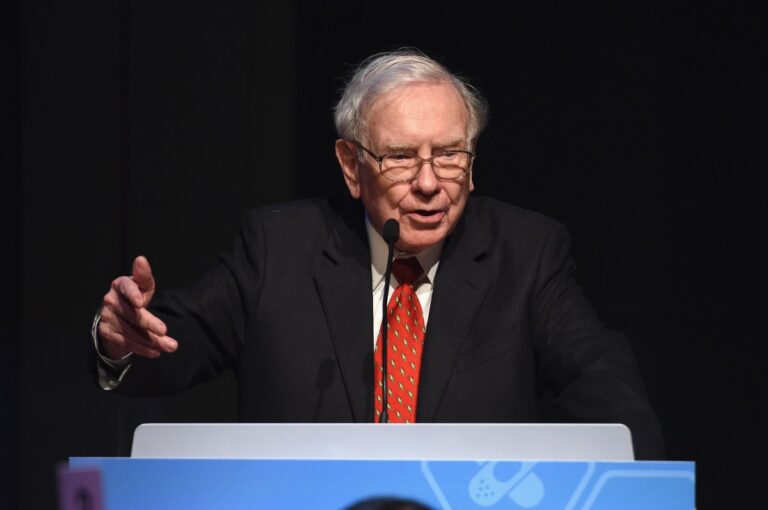
The formal agenda of the Federal Communications Commission’s open meeting this week seemed well in line with its normal wonky pursuits. There were items on satellite broadband, a licensing framework for the lower 37-gigahertz spectrum, and newly proposed rules that could help block robocalls. In the practiced government kabuki of these events, commissioners spoke, proposals were voted on unanimously, and chairman Brendan Carr, appointed by Donald Trump, ran things smoothly, though his demeanor was rather boisterous. An observer might conclude that despite the new administration, it was business as usual at the FCC.
Then came the regular press Q&A. Ever so politely, the beat journalists probed Carr about recent moves he’d made—like using the power of his role to investigate news organizations for airing stories that just happen to make Donald Trump unhappy. Notably, Carr has launched a probe into how CBS edited a 60 Minutes interview of then candidate Kamala Harris. Despite no evidence of journalistic malpractice, Trump demanded that the network should “lose its license” over the story. He also recommended other networks lose their affiliates “because they are just as corrupt as CBS—maybe even WORSE!”
This was before Trump came back to power, and Jessica Rosenworcel, then chair of the FCC, brushed it off. She noted that the agency didn’t revoke licenses because a politician disliked how he was covered. Before Rosenworcel left office, the complaint was denied. But after Trump installed Carr as FCC chair in late January, he pulled the case out of the dustbin and started an investigation. So much for following Trump’s January 20 executive order demanding “no Federal Government officer, employee, or agent engages in or facilitates any conduct that would unconstitutionally abridge the free speech of any American citizen.”
Carr’s response to questions about CBS at the open meeting was: “All options remain on the table,” even the “death penalty” of the network’s broadcast license. He also indicated that NBC and the other networks that have covered the case of the legal immigrant mistakenly deported to an El Salvadorian prison might be in similar trouble. His justification was that since broadcast outlets have exclusive access to their slice of public airwaves, their content must be in the public interest. If they don’t like that, he said, they can be podcasters.
The trouble with this—well there are a lot of troubles with this—is that it’s obvious that “the public interest” here is being interpreted as “stuff Donald Trump likes.” While the FCC can issue sanctions about “news distortion,” that term refers to egregious and consciously fraudulent reporting. The CBS case and the network coverage of deportations aren’t even in the same universe as that kind of malfeasance. “This is one of the tools that the administration is using to censor and control the news media, and to punish anyone that dares to speak against our government,” the remaining Democrat on the commission, Anna Gomez, told me this week.
It’s not only Democrats who are alarmed by this. In March, far-right crusader Grover Norquist—the guy who once said he wanted to drown government in a bathtub—was among the ultra-conservatives who signed a letter begging Carr to dismiss the case, saying it would “constitute regulatory overreach and advance precedent that can be weaponized by future FCCs.” Dude, it’s the current FCC we have to worry about! When Carr tried to explain his complaints about news coverage, he said they were all about empowering local news as opposed to big networks. But Gomez told me that the stations themselves are spooked. “I’ve spoken to local broadcasters throughout the country, and they’re nervous that they’re going to get dragged before the FCC based on the content of their coverage,” she says.






